
Browse an alphabetical list of documents from the Holocaust and World War II. These typed, handwritten, and artistic records are evidence of human experiences before, during, and after the Holocaust and war.
<< Previous | Displaying results 81-89 of 89 for "Document" | Next >>
The Soviet travel agency Intourist issued this type of luggage tag, showing a route map, to passengers on the Trans-Siberian Express. Some Jewish refugees traveled on the Trans-Siberian Express as they fled eastward. [From the USHMM special exhibition Flight and Rescue.]
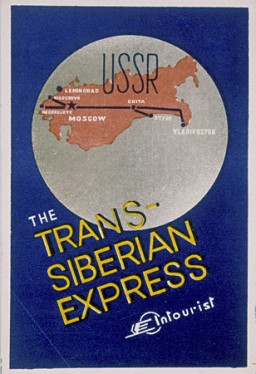
Protective document issued to a Jewish woman by the Swedish embassy in Budapest, Hungary, in 1944. Such documents protected the bearer from immediate deportation by the Germans to the Auschwitz killing center in occupied Poland. The "W" in the lower left corner indicates that Raoul Wallenberg initialed the document.
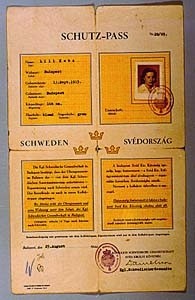
Simone Weil used this forged diploma and other false papers to document a new identity assumed in late 1943. As Simone Werlin, she could avoid arrest and change residence to facilitate her rescue of Jewish children as a member of the relief and rescue organization Oeuvre de Secours aux Enfants (Children's Aid Society; OSE). Weil had earned the diploma, which certified her to teach kindergarten in France, from the School of Social Work in Strasbourg in 1940. The director of the school willingly forged this…
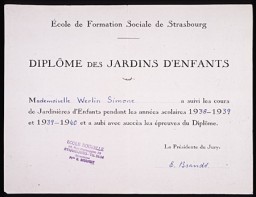
The back of Samuel Soltz's citizenship papers illustrates the vast array of bureaucratic stamps and visas needed to emigrate from Europe in 1940–41. The stamp in the top left, dated August 21, 1940, represents a visa from the Japanese consul to Lithuania, Chiune Sugihara. Sugihara issued thousands of visas to enable Jews to escape.
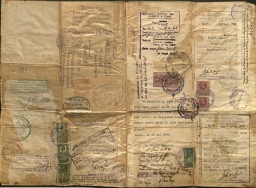
The Nazis made Jewish leaders responsible for the distribution of food supplies and other necessities allotted to ghetto residents. Due to grossly inadequate supplies, the Juedische Selbstverwaltung Theresienstadt (Jewish Administration of Theresienstadt) issued ration cards such as this one. The columns count points allotted for various goods identified by letters of the alphabet. Boxes were removed as residents exchanged points for food or other goods. This view shows the front of the card. Issued in the…
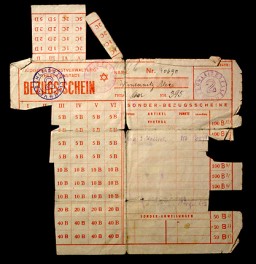
A train ticket for travel on the Trans-Siberian Railroad. [From the USHMM special exhibition Flight and Rescue.]
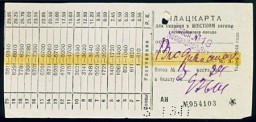
Diagram showing "the web of communications" between Japanese diplomats and members of the Polish resistance in the Baltic states and Scandinavia. The "Konsulat japonski Kowno" refers to Sugihara. Despite its ties with Nazi Germany, Japan pursued its own course in foreign policy. After the Germans occupied Poland and the Netherlands, Japan continued relations with both the Polish and Dutch governments-in-exile in London. July 1940.
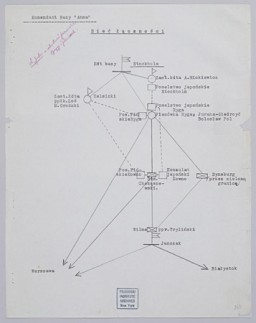
Dr. J. Rebhan, chair of the Jewish council in Przemysl, Poland, signed this document certifying that Max Diamant had stable employment in the Jewish clinic. The certificate identifies Diamant as a dentist and is dated June 4, 1942. During World War II, the Germans established Jewish councils to ensure that Nazi orders and regulations were implemented. Jewish council members also sought to provide basic community services for ghettoized Jewish populations.
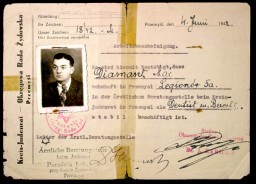
Yiddishe Shtime fun Vaytn Mizrekh (Jewish Voice of the Far East), Shanghai, December 1945. Includes black border notice of 5,700,000 Jewish victims. [From the USHMM special exhibition Flight and Rescue.]
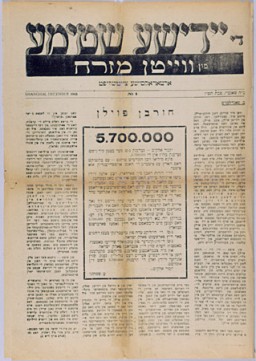
We would like to thank Crown Family Philanthropies, Abe and Ida Cooper Foundation, the Claims Conference, EVZ, and BMF for supporting the ongoing work to create content and resources for the Holocaust Encyclopedia. View the list of donor acknowledgement.